This year’s retiring teachers open up about classes taught, lessons learned, and life after Carleton.
Known for their insatiable curiosity, Carleton students rely on their professors to challenge preconceptions, encourage boundary pushing, and model civil discourse. Along the way, the best of these instructors — who, on this campus, always put teaching first — consistently emphasize that the pursuit of knowledge is a joyful, lifelong quest — a practice that enables forward motion and fortifies the collective spirit. As outgoing president Steve Poskanzer told the Voice last spring: “Carleton has a unique blend of academic excellence combined with a culture of unpretentiousness, humor, kindness, and decency.”
This year’s academic retirees embody the best of this 155-year-old tradition. From year-to-year, subject-to-subject, they’ve had an indelible impact on countless students, alumni, and fellow faculty and staff members. They’ve done this by sharing what they know about a particular discipline or school of thought, and by questioning, gently cajoling, and — perhaps most importantly — listening intently to their pupils.
To celebrate this gang of seven, we thought it would be fun to turn the tables and let Carleton senior Julia Johnston administer a little pop quiz. As expected, the teachers responded with aplomb and, along the way, instinctually encouraged deeper thinking about aspects of the wider world.
— The Editors
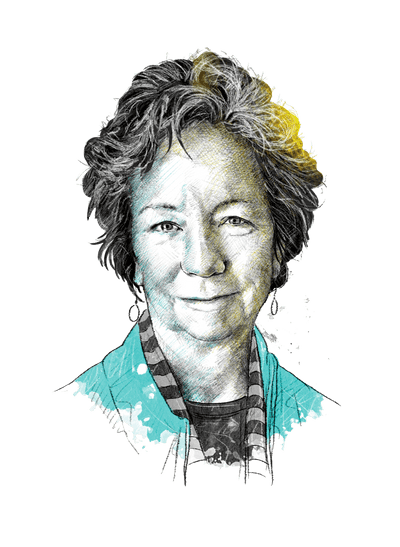
Linda Burdell
Senior Lecturer in Spanish, Emerita
Years at Carleton: 16
Favorite Classes: Spanish 204
What advice would you give to your younger self?
Remember that stuff that seems difficult is easy once you learn it.
If you could know the absolute truth to one question, which question would you ask?
How can we engage college students in nonjudgmental learning?
If you could combine two or more languages together to make the best-sounding language in the world, which languages would you choose and why?
Linguists don’t have favorites! Instead, we marvel at the huge variety of sounds that carry meaning in all the languages of the world, from intonation to clicks to any of the other 500 different sounds that populate human languages. Each language picks out 40 or 50 different sounds to play with to make a specific language, but they are all totally marvelous.
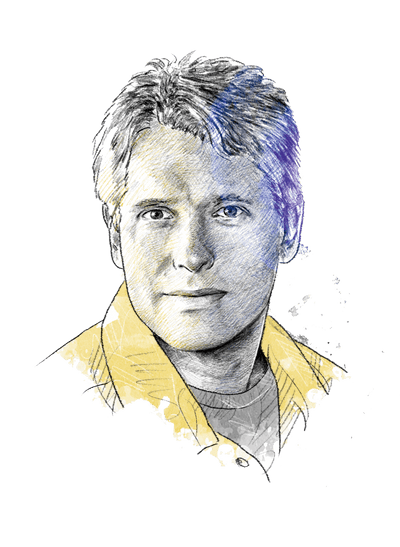
Daniel Bruggeman
Senior Lecturer in Art, Emeritus
Years at Carleton: 20
Favorite Classes: Figure Drawing, Life Drawing, Observational Drawing
What failure do you most cherish?
When I first came here, I was a sabbatical replacement, only supposed to teach two terms. My position here wasn’t a tenure track, so I concluded that if I wanted tenure, I was going to have to leave. But I wanted to be at Carleton, so I think my “failure” would be defined as making my decision to stay here without tenure a deliberate one.
I thought that people would see me differently as a senior lecturer than as a tenured professor. But as I taught for longer, I got over the feeling of failure and saw it as an opportunity to be a good teacher and have as much time to be the artist I wanted to be. And I have loved being here. If I could talk to my younger self, I would say that to him.
Which famous artist do you wish you could have a conversation with?
Käthe Kollwitz. She was one of the first women to be taken seriously in a male-dominated world. To go back to the ’60s and to WWII, to not even know if life would go on, I’d love to ask what drove her to make this art that was simultaneously beautiful and distressing.
You get to steal the original of any artwork in the world. Which would you choose and why?
Ripley Street Ridge by Wayne Thiebaud. Or maybe The Goldfinch [by Carel Fabritius] because I have fantasized about stealing it from the Metropolitan Museum of Art ever since I read The Goldfinch by Donna Tartt.
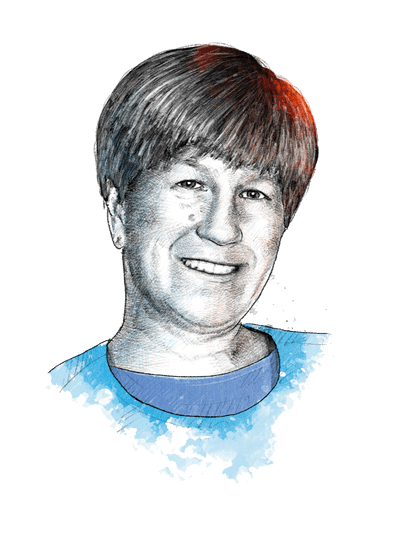
Liz Ericksen
Senior Lecturer in Music, Retired
Years at Carleton: 28
Favorite Classes:
Private Violin Lessons, Private Viola Lessons, Chamber Music Coaching
What failure do you most cherish?
Probably my most significant failure as a child/teenager was my inability to learn vibrato. When I was learning the violin, teachers would say “do this” and shake their hand, and either you could do it or not. I could not. Frankly, I had a tight nanny-goat vibrato that was unpleasant to listen to. This meant that I could not major in violin performance in college, so I majored in music education instead.
At the University of Illinois, I studied under [violin professor] Paul Rolland to “fix” my vibrato. He was generous with his time — sometimes seeing me between lessons for 10 minutes — and he simultaneously taught me the importance of persistence and kindness.
In retrospect, my music ed degree became valuable as I did more teaching. Having a wider experience of all the other instruments was helpful in coaching chamber music.
What song (contemporary or classical) do you wish you’d written?
I have never aspired to be a composer, but lately I have been experimenting with improvisation and would like to do more of that.
What are you most curious about in life?
I have three questions right now: how do people learn, what are the obstacles to their learning, and how do you break down these obstacles so they can learn?
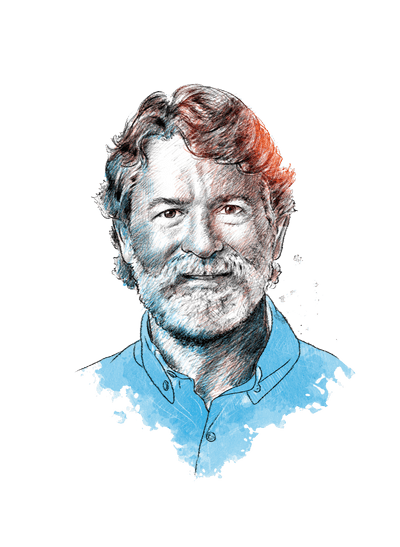
Mark Hansell
Burton and Lily Levin Professor of Chinese, Emeritus
Years at Carleton: 32
Favorite Classes: Chinese 101, Advanced Chinese: Reading the News, Historical Linguistics
What failure do you most cherish?
Having recently gone through my office to move out, I would say not reading all the incredible books I’ve collected over the years. The problem with Carleton is there are so many interesting people to talk to that you forget about the books you want to read. I guess that’s what retirement is for.
You get to steal the original copy of one piece of literature in the world with no consequences. Which would you steal and why?
Why would I steal it? I wouldn’t need the original, I’m perfectly happy reading a copy of just about anything. Well, actually, I’d steal The Martian Chronicles by Ray Bradbury. I’ve already read it, but I’m hoping I would get caught and then I could talk to him. I’d probably be a bad burglar anyway.
If you could have designed one language or system of writing in the world, which would it be and why?
If I could have designed the Korean alphabet, that would make me happy because it’s brilliant. All the circles and lines are so logical and elegant. There’s nothing wasted. Everything fits together perfectly. But I cannot have created it because that credit goes to King Sejong. And he’s cool because he didn’t just take credit for designing the alphabet. He actually helped his scholars design it.
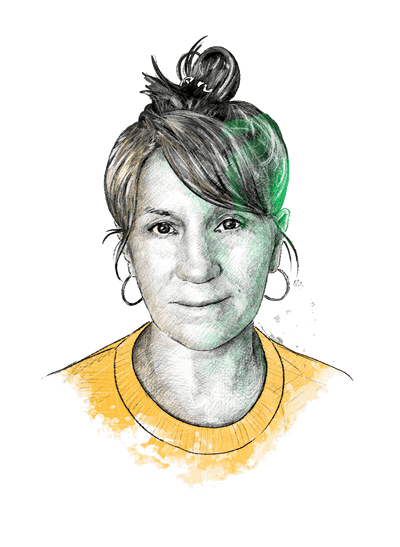
Jane Shockley
Senior Lecturer in Dance, Emerita
Years at Carleton: 27
Favorite Classes: Modern and Contemporary Dance Forms, Contact Improvisation, Moving Anatomy
What failure do you most cherish?
My failure as a choreographer to stick to my choreographic plan. I allow “happy accidents” to influence the creation.
What dance do you wish you’d choreographed?
Enter Achilles by DV8 Physical Theatre. I wish I had choreographed it for its ability to navigate dangerous emotional currents while simultaneously taking breathtaking physical risks.
When thinking about dance types, which would you assign to A) Your companion on a desert island? B) Your cool aunt or uncle? C) Your college professor?
Tango on a deserted island, swing dance for a cool aunt or uncle, breakdancing for the college professor.
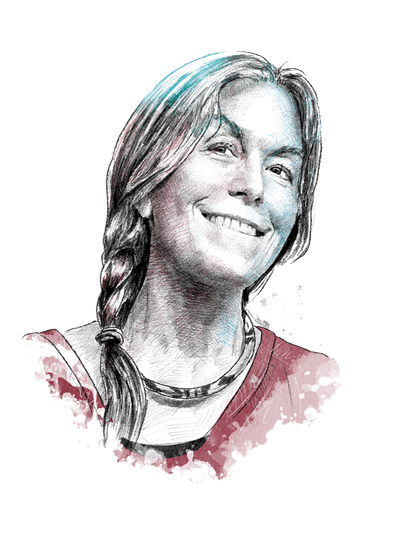
Linda Rossi
Professor of Art, Emerita
Years at Carleton: 20
Favorite Classes: Photography in Hawaii, Experimental Photography, The Digital Landscape
What advice would you give to your younger self?
Be compassionate, stay fearless, and explore the world deeply. Generously share your findings with others.
If you could know the absolute truth to one question, which question would you ask?
Hmmm, is it okay if I instead quote Maya Angelou? “A bird doesn’t sing because it has an answer, it sings because it has a song.”
If you could only photograph one place or scene for the rest of your life, which would it be and why?
This is an impossible question for me, as I love to travel and explore all kinds of locations. I have spent over 10 years deeply investigating Rice County with the help of a telescope, microscope, drone, camouflaged blind, and Myles Bakke — our resident tracker. I would like to go back to Africa, though, where I often had to flee from wildlife bigger than a squirrel.

José Cerna-Bazán
Professor of Spanish, Emeritus
Years at Carleton: 20
Professor Cerna-Bazan was not available to speak with the Voice this past summer. We wish him all the best.
